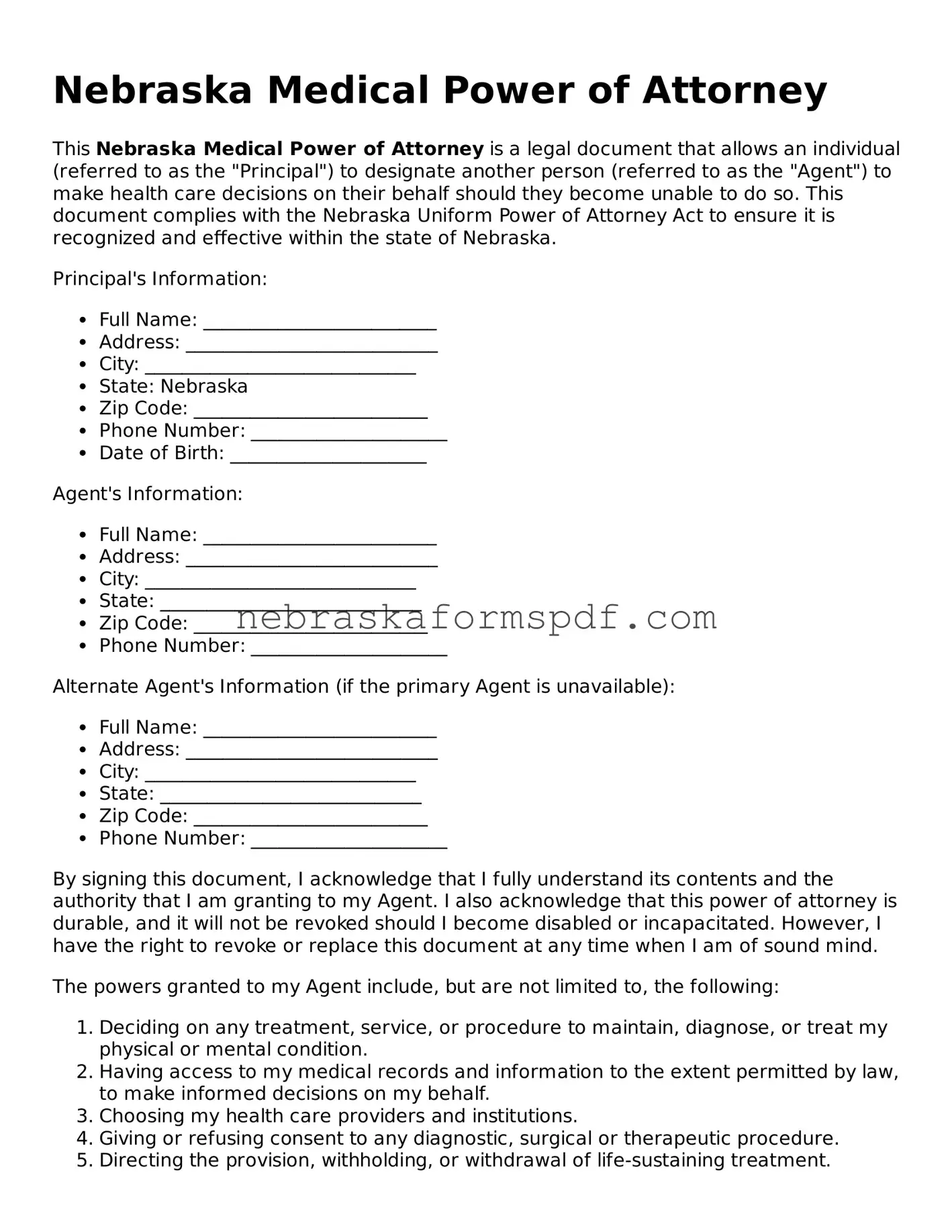Nebraska Medical Power of Attorney
This Nebraska Medical Power of Attorney is a legal document that allows an individual (referred to as the "Principal") to designate another person (referred to as the "Agent") to make health care decisions on their behalf should they become unable to do so. This document complies with the Nebraska Uniform Power of Attorney Act to ensure it is recognized and effective within the state of Nebraska.
Principal's Information:
- Full Name: _________________________
- Address: ___________________________
- City: _____________________________
- State: Nebraska
- Zip Code: _________________________
- Phone Number: _____________________
- Date of Birth: _____________________
Agent's Information:
- Full Name: _________________________
- Address: ___________________________
- City: _____________________________
- State: ____________________________
- Zip Code: _________________________
- Phone Number: _____________________
Alternate Agent's Information (if the primary Agent is unavailable):
- Full Name: _________________________
- Address: ___________________________
- City: _____________________________
- State: ____________________________
- Zip Code: _________________________
- Phone Number: _____________________
By signing this document, I acknowledge that I fully understand its contents and the authority that I am granting to my Agent. I also acknowledge that this power of attorney is durable, and it will not be revoked should I become disabled or incapacitated. However, I have the right to revoke or replace this document at any time when I am of sound mind.
The powers granted to my Agent include, but are not limited to, the following:
- Deciding on any treatment, service, or procedure to maintain, diagnose, or treat my physical or mental condition.
- Having access to my medical records and information to the extent permitted by law, to make informed decisions on my behalf.
- Choosing my health care providers and institutions.
- Giving or refusing consent to any diagnostic, surgical or therapeutic procedure.
- Directing the provision, withholding, or withdrawal of life-sustaining treatment.
This Medical Power of Attorney takes effect immediately upon my incapacity to make health care decisions as certified by a physician.
Principal's Signature: _______________________ Date: ________________
Agent's Signature: __________________________ Date: ________________
Alternate Agent's Signature: _________________ Date: ________________
Witnesses' Signatures (Witnesses must be adults who are not designated as your Agent or alternate Agent, and who are not related to you by blood or marriage, and who would not be entitled to any portion of your estate):
- Witness 1 Signature: ___________________________ Date: ________________
- Witness 2 Signature: ___________________________ Date: ________________
Notarization (if applicable):
This document was acknowledged before me on (date) _____________ by (Principal's name) ___________________________.
Notary Public: ___________________________
My commission expires: ___________________

